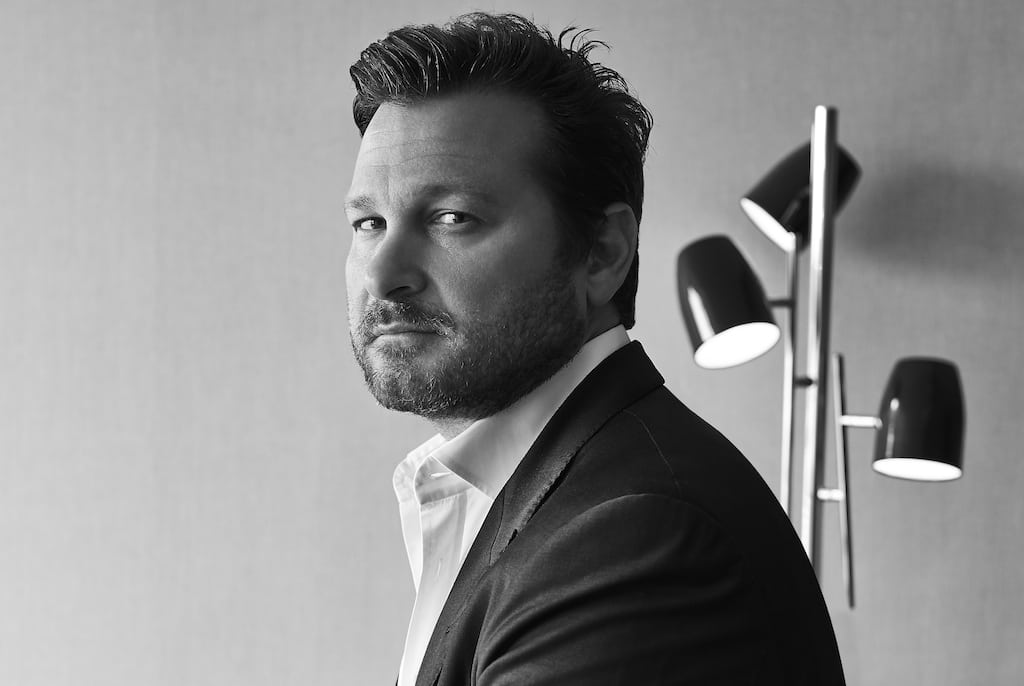Interview: SIXTY Hotels CEO Jason Pomeranc on the New Boutique Stay

Skift Take
Editor’s Note: This interview is part of Skift’s CEO interview series. This particular series is with hospitality CEOs talking about the Future of the Guest Experience and the evolving expectations and demands of hotel guests. Check out all the interviews as they come out here. Also, enjoy the previous series on the Future of Travel Booking, with online travel CEOs.
Jason Pomeranc was bred to be a hotelier. He attended university in New York City before joining his father’s real estate firm, which later opened the 60 Thompson hotel in 2001. Pomeranc led what was then one of first trail-blazing boutique hotel groups for the next decade before merging the 12-property brand with the Joie de Vivre chain to create Commune Hotels & Resorts.
Read Skift's interview with Commune CEO Niki Leondakis here.
In 2013, Pomeranc announced he was leaving the company to launch SIXTY Hotels. The original 60 Thompson and several other locations have since been transformed into SIXTY properties, which currently include three properties in New York City, one in Beverly Hills, and fifth set to open imminently in South Beach.
Pomeranc continues to iterate on the idea of boutique brand with a focus on personalized service, aspirational locations, and sophisticated food and drink options.
We recently spoke to Pomeranc about the guest experience at SIXTY Hotels, how technology has changed how the hotel interacts with guests and the evolution that led to the mass market appeal of boutique stays today.
Skift: What are the biggest challenges that you face today in improving the guest experience at the hotel?
Jason Pomeranc: We’re always trying to improve the guest experience. I think that the industry and all the factors relating to the industry are changing so fast and guests have a much broader sense of information and expectation. People are marketing hotels and brands around a lot of buzz words and catch phrases today.
Fundamentally, even with all this evolution, it comes down to the same reason that people have always chosen to stay at the hotels that they like. It's the service culture, the aesthetics, and the comfort factor. It's the lifestyle experience of moving slightly away your “outside the hotel” self to your “inside the hotel” self and immersing yourself into that fantasy, a slight variation from the harshness of your day-to-day life.
It's a combination of physical and technological factors, but it's all very psychological. We're trying to keep up with our guests’ emotions, their psyche, and what they're looking for when they're staying in a hotel.
Skift: What elements of the guest experience are you most focused on improving at SIXTY?
Pomeranc: I am focused from a technical point of view. Technology is hard everywhere in our society and hotels are no different; it evolves and changes extremely quickly.
We know that guests are working, thinking, and entertaining themselves in a different way than they were even five years ago. It's important to set up the public spaces in our guest rooms in order to be conducive to that.
It's a much more casual work environment. They're using the lobby as de facto offices, they use multiple devices and connectivity is super important. The technology keeps growing but the base needs to be strong. As we’re evolving the brand, we understand that people are playing, working and sleeping in a different way than they did before.
Skift: What are some other unexpected shifts that you’ve seen in guest expectations or demands in creating the SIXTY brand?
Pomeranc: The way that guests are finding you is very different because of the same reasons. Brand loyalty is created so much through the virtual world as opposed to the way that it used to be.
There's so much information out there and guests are very smart about how they're finding the best potential value, how they're finding what accommodates them visually and programmatically.
The idea of “brand” has become much more about specific locations and local options, because guests are zeroing in on specific properties with specific room types. They're getting very granular in how they make their decisions about where they want to stay. That’s very different than it was a couple years ago.
Skift: You mention how customers are discovering brands online and through social media. What are some of the ways that you make SIXTY more discoverable online?
Pomeranc: We’re creating content consistently in order to immerse those who are still discovering where they want to go.
Skift: What role does technology play in improving the guest experience? Is consumer-facing or back-end technology more important or effective?
Pomeranc: Technology is affecting how we do everything in our day-to-day lives. On a consumer-facing side, guests are using technology more to interact with the hotel – they’re booking wake-up calls, room service, and concierge-related activities. There’s a lot of technology in play that allows them, particularly on a work schedule, to structure their stay in a way that feels organized and efficient to them.
On the back-end side, technology allows our internal departments to communicate better. It allows us to garner more information about our guests to hopefully make their future stays better and to sell a better product as we move forward.
The hotel industry is a little bit behind other consumer product industries. Industries selling particular items and e-commerce are much more focused. It’s much easier to attribute analytics to what’s helping them sell and whether their customer is satisfied. If you’re selling a TV online then you know what your price and return rate is. If booking or guest satisfaction is up at a hotel, there’s a variety of factors contributing to that, not just technology. Technology is helping but it’s not as clean cut as other industries
Skift: What are your thoughts on the increase in hotel fees levied against guests?
Pomeranc: In a more competitive field, which major cities’ hotels are in, there are more hotels and more inventory. Because there’s a lot of great competition, hotels have to be a little more focused on these additional fees.
Often these additional fees are farmed out to third-party vendors. For instance, we don’t own parking lots in New York City so parking fees go to a third-party vendor. This goes for a variety of other services.
The online travel agencies has increased rate competition to the point where you don't have a lot of margin anymore to throw in these things for free. It ends up becoming an a la carte option, where guests can choose to add or not add them. In reality, fees are by-products of creating rate value for guests. The negative blowback is there are extra charges where guests just never saw them before.
Skift: Thompson Hotel Group was one of the early boutique brands, but it has since become a major part of the hospitality industry. Global hotel corporations are creating their own boutique or lifestyle-like hotels or investing in independent properties. What do you think led to this increased interest in the boutique hotel stay and where do you think it’s headed?
Pomeranc: If you look back 15 years, the market was so much smaller. We were one of the first brands out there, the W was in conception phase, and there was Ian Schrager and a couple others. Media and guests were so interested in what was going on. We were changing all the preconceptions of how a hotel is supposed to work and the big brands noticed. At a certain point, they were losing market share and we were gaining it. They had to react to that.
Having said that, I think it's good for the industry as a whole to have so much comfort for the consumer and certainly to have so much competition. But it puts the onus on an independent operator like us to again change the parameters of what the industry is about and shift where the focus is aesthetically and programmatically -- to be more creative and reset the standard. I think that’s just the nature of how the industry works.
Skift: Thank you so much for your insights. Is there anything else about the guest experience that we haven’t touched on that you are very focused on or that keeps you up at night?
Pomeranc: The industry is changing quickly, but in the end we must all remember that, for the most part, we're innkeepers. It’s about the basic human interaction, how things feel, how the front desk deals with something when it goes wrong, or how the concierge can cater to guests’ stay. It’s the basic feeling of what you aspire to and how a guest can elevate their mood when walking into a hotel. That’s still the core issue. That’s still what we do. Everything else is just a tool to help us get there.





